Shanghai Forum 2023 kicked off on October 27, with a focus on the theme, “Towards a More Inclusive Globalization: Asia's New Responsibilities”. Nearly 500 guests from world-renowned think tanks, universities, public and private sectors attended the Forum, with about half of the guests from abroad.
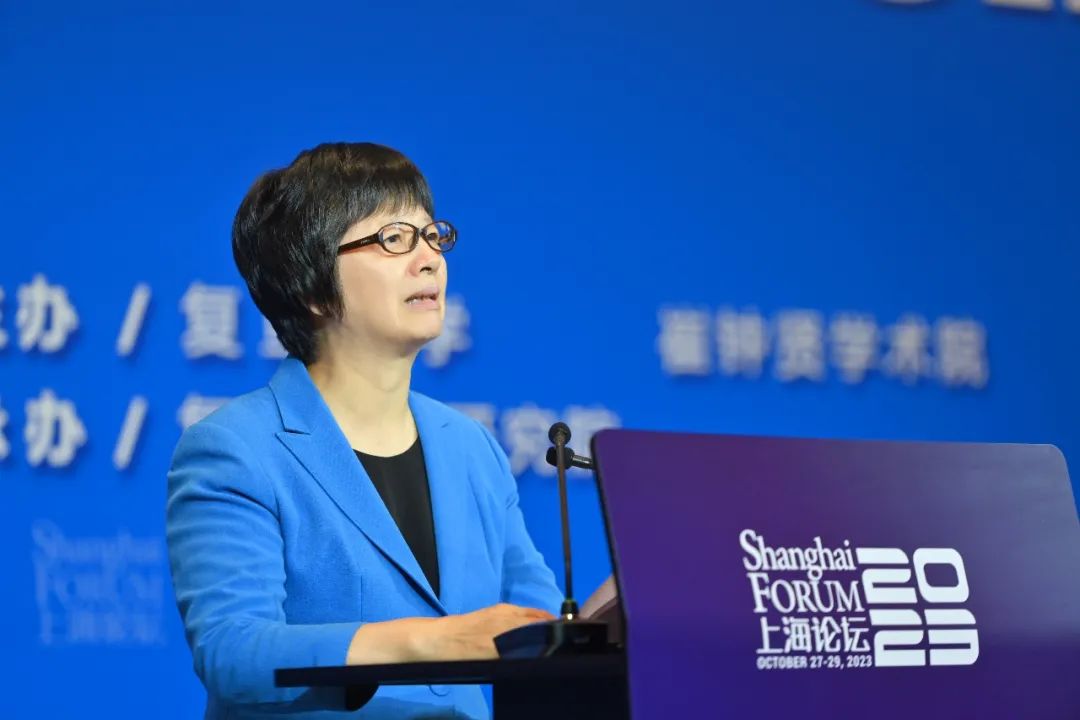


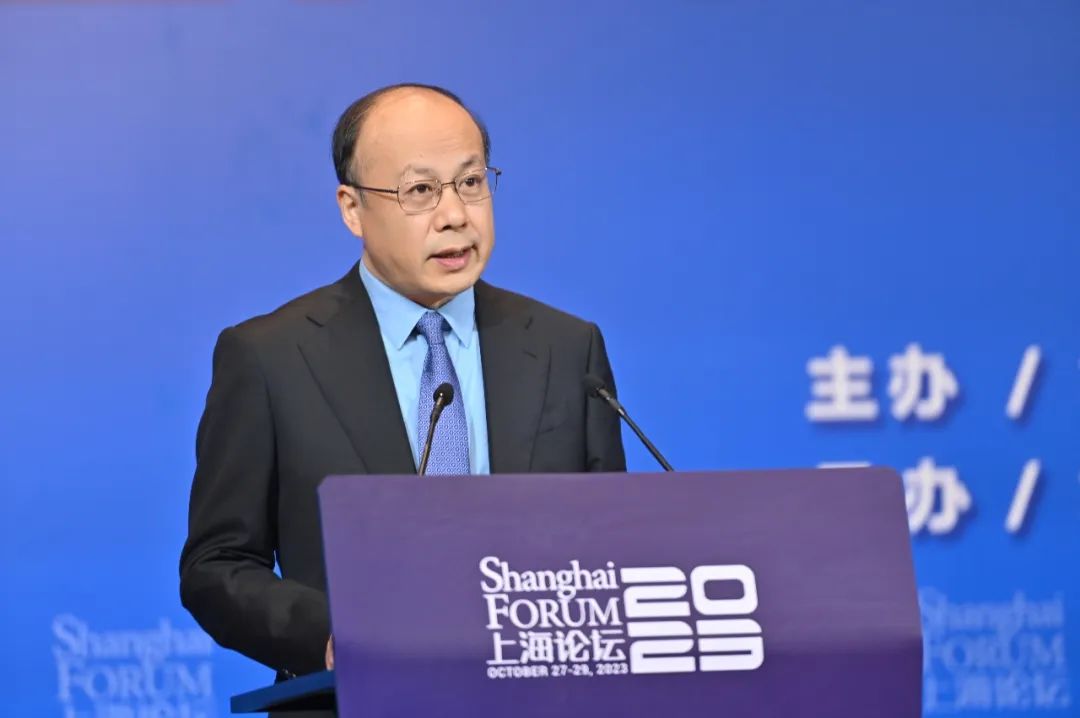
During the opening ceremony, Zong Ming, vice chairperson of the Standing Committee of the Shanghai Municipal People’s Congress, Jin Li, president of Fudan University, and Chey Tae Won, chairman of SK Group, delivered welcome speeches at the ceremony. Presiding over the opening ceremony was Chen Zhimin, vice president of Fudan University.
Cui Tiankai, former Chinese ambassador extraordinary and plenipotentiary to the United States of America and former vice foreign minister of the People’s Republic of China, Takehiko Nakao, former president of the Asian Development Bank, chairman of the Institute at Mizuho Research & Technologies, Ltd., James B. Steinberg, former U.S. deputy secretary of State and dean of School of Advanced International Studies, Johns Hopkins University, Amr Ezzat Salama, former minister of Higher Education, Scientific Research and Technology of Egypt and secretary general of the Association of Arab Universities and Pascal Lamy, former director-general, World Trade Organization, delivered keynote speeches. The keynote speeches session was moderated by Park In-kook, president of the Chey Institute for Advanced Studies.

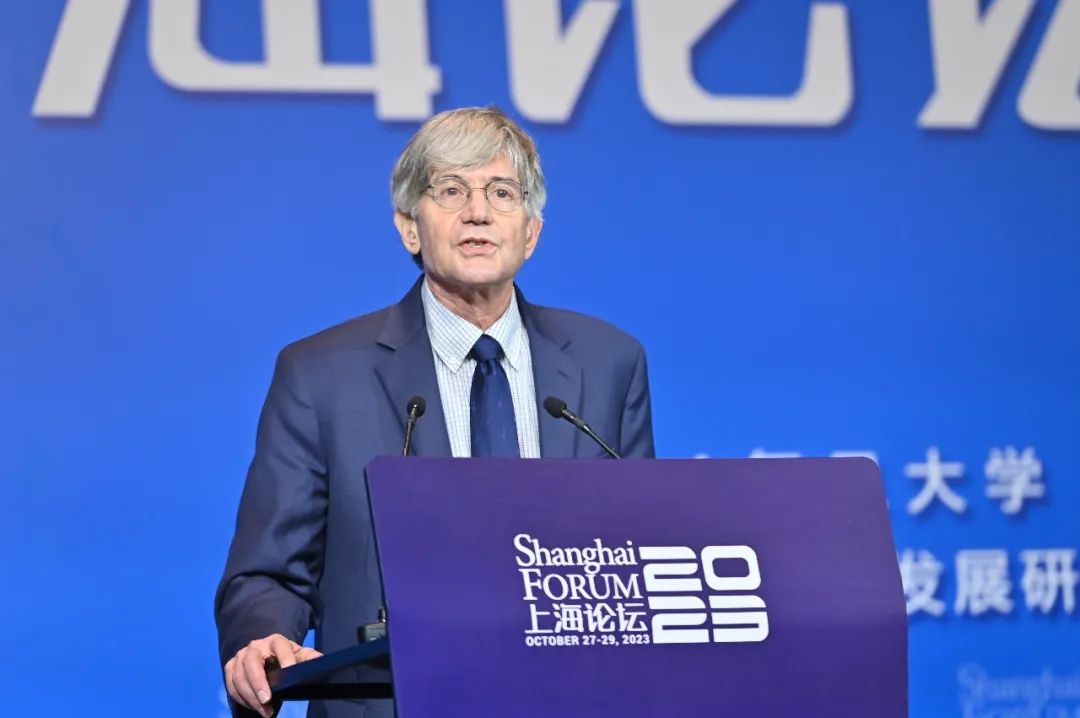
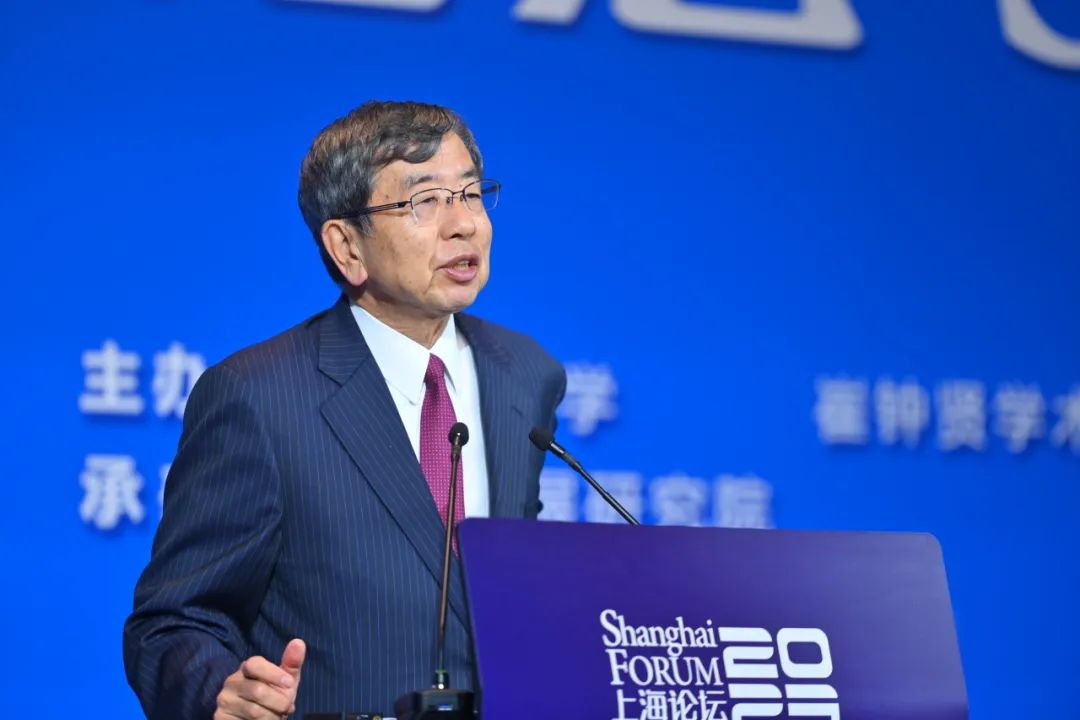
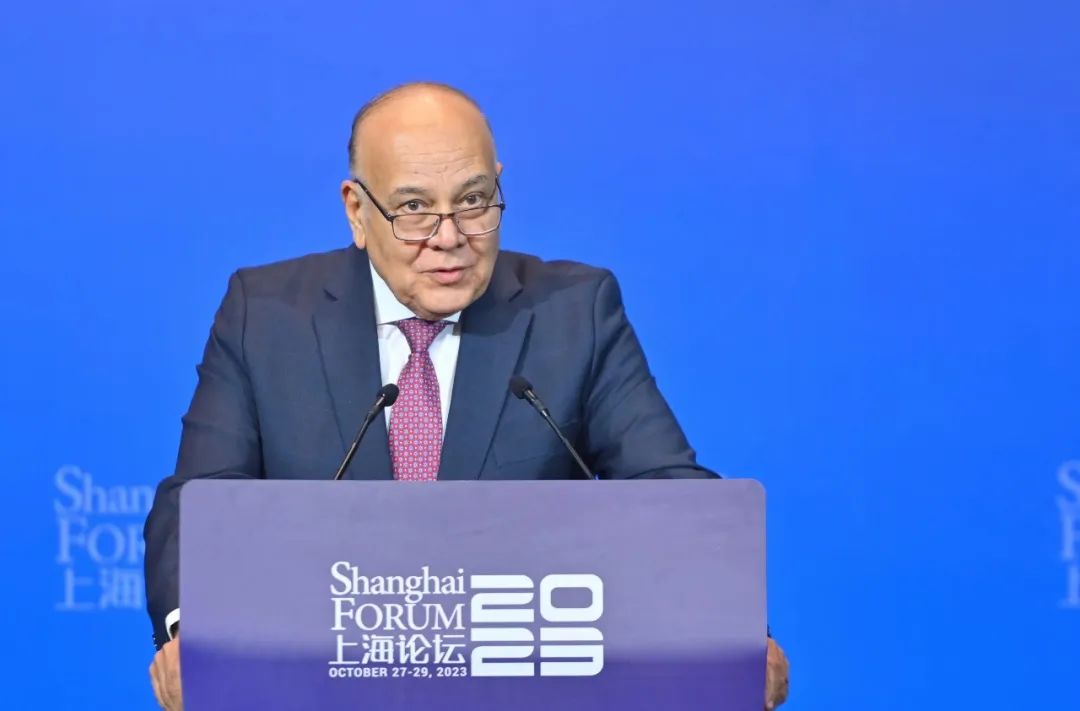

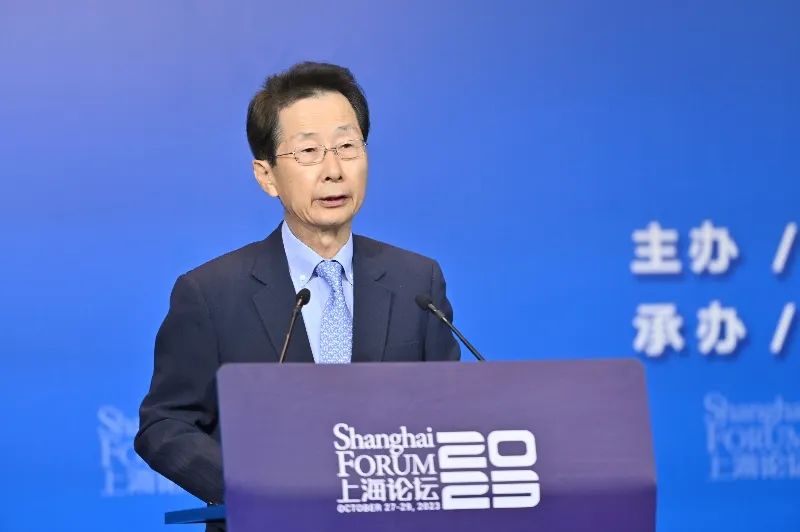
Cui Tiankai said, globalization should benefit the mankind in general and have sufficient inclusiveness. It is important to note that the inclusiveness does not mean condescending charity, nor does it imply that any individual or country can force others to follow their leads. True inclusiveness should be built on equal treatment, mutual respect, mutual learning, recognition of the world’s diversity, and respect for other countries’ choices. Countries should draw on each other’s strengths to achieve common prosperity.
James B. Steinberg believed all of us should have a part to play in helping to build toward a more promising future. US and China must make a more serious commitment to cooperate on issues of mutual interest, particularly those where the world depends on the two countries to lead the way. The two countries must do a better job in managing differences and robust people to people engagement across all sectors of our societies. The world needs engagement from countries large and small, north, south east and west, which is also the idea at the heart of Shanghai Forum.
Takehiko Nakao pointed out China can adopt an expansionary macroeconomic policy while promptly identifying and disposing of bad debts to maintain long-term stability in economy and society. It can also establish an open trade and investment system to provide a favorable environment for foreign and private enterprises, continue to improve public services, redistribute income through taxation to promote common prosperity, and establish good foreign relations by strengthening communication and achieving mutual trust with other countries.
Amr Ezzat Salama believed that priority should be given to investment in research and development, efforts should be made to establish mechanisms for knowledge-sharing and technology transfer, and foster a culture of collaboration and inclusivity. Governments, universities, industry leaders, and civil society must join forces, leveraging their respective strengths, to promote an ecosystem of innovation and equitable development.
Pascal Lamy said we should all resist the portraits of economic nationalism. More importantly, we should start addressing new obstacles to trade, which have appeared as a result of developments which were not there before. EU and China should partner more than they do in trying to address issues of trade, climate-related measures, and digital convergence or coexistence.
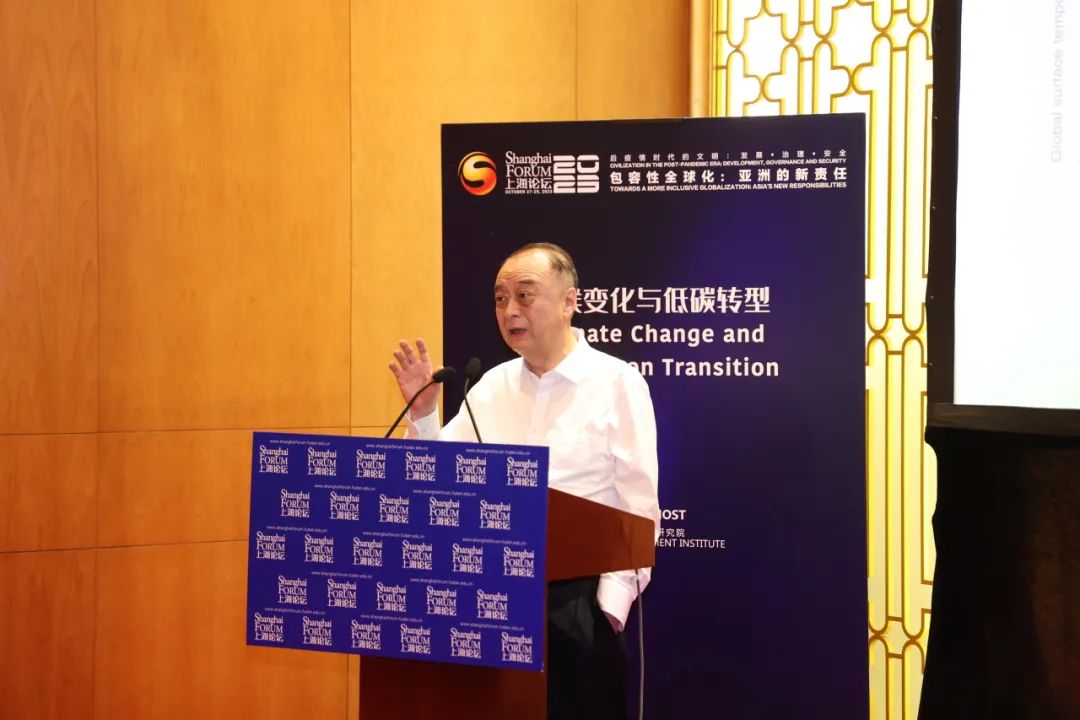
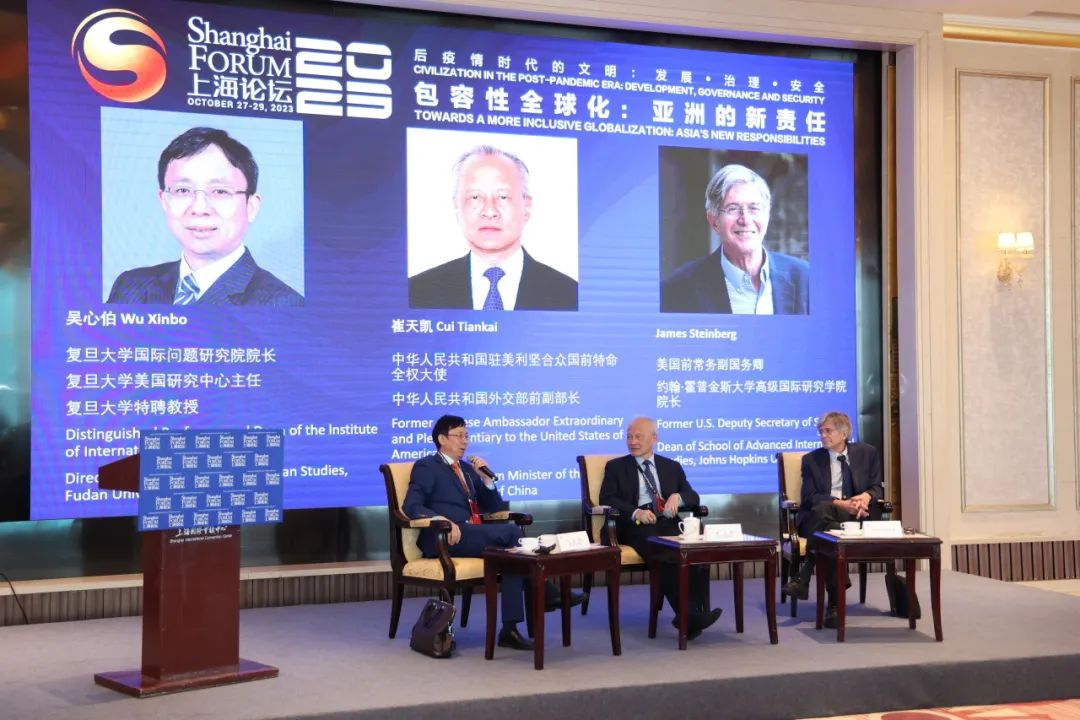
Zhou Mingwei, former deputy director of Taiwan Affairs Office of the State Council and former director of China Foreign Languages Publishing Administration, György H Matolcsy, governor of the Central Bank of Hungary and former minister of Economic Affairs of Hungary, Syed Tariq Fatemi, former minister of State for Foreign Affairs, Pakistan, Farraj Alajmi, director of the Education and Scientific Research Department and general secretariat of the League of Arab States, Mustapa Mohamed, former minister of International Trade and Industry of Malaysia, Sofiane Sahraoui, director general of the International Institute of Administrative Sciences and So Jin Woo, vice president of SK Group also attended the ceremony.

Shanghai Forum 2023 spans three days, with a particular focus on five major areas: International Economy, Climate Change and Low-Carbon Transition, Global Development and Governance, Geopolitics, Digital Security, and Openness. The event comprises an opening ceremony, five main forum sessions, 18 sub-forum sessions, and six high-level roundtable discussions.
It’s worth mentioning that the souvenir canvas bags and volunteers’ T-shirts for this forum were all crafted from recycled PET plastic bottles. In comparison to conventional polyester fibers, the recycled materials can lead to reduction in energy consumption by 70%, carbon emissions by 75%, and water usage by 86%. With the help of blockchain technology, each stage of production is traceable through the product’s QR code. The forum’s organizing committee also invited children with Down syndrome to design the canvas bags and T-shirts.
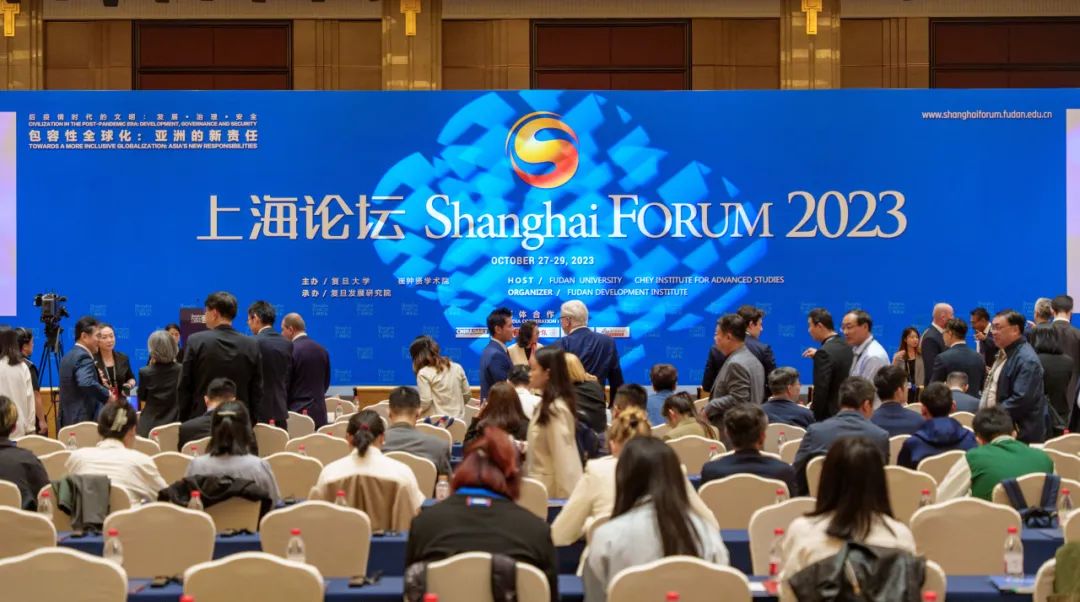
Situated in Shanghai and capitalizing on the academic strengths of Fudan University, the Shanghai Forum, jointly organized by Fudan University and the Chey Institute for Advanced Studies, has successfully hosted 18 annual meetings since its inception in 2005, with participation from over 10,000 individuals, both domestic and international. The Shanghai Forum serves as a platform for communication and exchange among political, business, and academic figures from China and abroad. In the fields of global governance, social governance, public security, ecological governance, technological innovation, and cultural civilization, the Forum provides opportunities for in-depth discussions on major strategic issues and development challenges, with the ultimate goal of improving people’s livelihoods and driving human progress.

